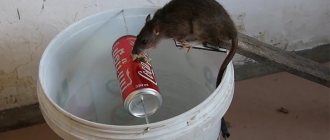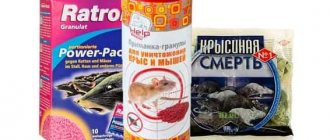4 465
14
Author:
Aleynikova Ekaterina.
Reading time: 7 minutes
The law allows the breeding of birds on personal plots and regulates it by the following legal norms:
- Law of the Russian Federation No. 49479-1 of May 14, 1993 “On Veterinary Medicine”;
- SNiP 30-02-97 “Planning and development of territories of gardening dacha associations of citizens, buildings and structures”;
- Order of the Ministry of Agriculture of the Russian Federation dated April 3, 2006 No. 103 “On approval of veterinary rules for keeping birds on private backyards of citizens and open poultry farms”;
- Federal Law No. 112-FZ dated 07/07/03 “On personal subsidiary farming” (with amendments and additions);
- Federal Law No. 217-FZ dated July 29, 2017, which entered into force on January 1, 2019 , “On gardening and vegetable gardening for citizens for their own needs.”
Content requirements
In Article 13 of Law No. 4979-1, the general requirements for keeping poultry as a category of domestic animals are disclosed in detail:
- the structure where birds live temporarily (fences or pens) or permanently must be adequate in area and equipment;
- owners are required to provide birds with drinking water, dry or wet food , as well as feed additives that are certified as not hazardous to the health of the bird and not capable of polluting areas adjacent to the construction;
- It is permitted to use only such dry nutritional rations or vitamin and mineral concentrates that have been tested by the veterinary service and do not violate international standards;
- identification by veterinary service specialists of facts of feeding poultry with diets or additives that do not have certification should lead to clarification of the point of production and sale of these products for the seizure and cessation of such practices;
- if it is necessary to take poultry to the market, for processing, to an exhibition or off-site for other purposes, the route for transporting or moving chickens must be coordinated with veterinary control regarding the prevention of the spread of infectious diseases of poultry.
Requirements of the Federal Service for Veterinary and Phytosanitary Surveillance
The provisions of Part 2 of the Order of the Ministry of Agriculture of the Russian Federation dated April 3, 2006 No. 103 put forward a number of requirements for the territories and structures in which poultry are supposed to be kept:
- construction only on areas with drainage and drainage for surface water;
- the presence of a fence and infrastructure in the form of water supply and gas supply , electricity and sewer networks;
- keeping chickens separately from other birds - ducks, geese, turkeys , as well as in the presence of an isolated exit from the structure for each type of poultry;
- allocation of areas directly adjacent to outbuildings for walking chickens separately from other species of birds and animals;
- interior decoration of the walls, ceiling and floor of the room with washable coatings resistant to disinfectants;
- resistance of the floor covering to heat loss , mechanical damage, aggressive drains containing chicken droppings, and disinfectants;
- ventilation of the room both natural and forced to create a stable microclimate;
- compliance with standards and implementation of measures to eliminate the risk of poultry disease;
- if possible, keeping only chickens on one site by one owner , without combining their raising with other types of domestic animals and poultry.
Veterinary rules for maintaining poultry housing
The provisions of Part 3 of the Order of the Ministry of Agriculture of the Russian Federation dated 04/03/2006 No. 103 provide precise instructions on what veterinary standards regulate structures in which poultry are kept.
Thus, in clause 3.1 it is assumed that such premises must meet the standards of Art. 13 Federal Law No. 4979-1 and be potentially favorable for birds to stay in them without risk to the health and life of the latter.
The text of clause 3.2 details the measures that must be taken to ensure optimal conditions for keeping poultry:
- if there is a risk of epizootics in the region, entry into the premises with poultry occurs after the shoes of the persons serving the poultry are disinfected in ditches filled with disinfectants;
- regular cleaning of the premises from droppings, feathers, food and dust;
- washing, as well as, if necessary, disinfection, equipment of the premises and containers in which the birds are offered feed, water and feed additives;
- careful collection and disinfection of droppings;
- general cleaning of the premises after changing a batch of poultry, removing bedding , washing and disinfecting all washable surfaces;
Separately, clause 3.3 specifies the standards for arranging premises for poultry in order to avoid its contact with wild relatives, potential carriers of infectious agents, which means isolating windows, doors or ventilation ducts with mesh barriers.
In clause 3.4. There are indications that unauthorized persons are not recommended to visit the poultry house, and to enter it, in accordance with clause 3.5, they must wear clean overalls, used only for work in this room, and work shoes.
Sanitary standards for keeping chickens regarding stocking density
Now about the main thing - sanitation. Breeding poultry requires strict adherence to their maintenance standards. This concerns the presence of a separate room, a chicken coop, in which the chickens will live. It should be on a flat area so that it does not flood with water, with a door, windows and an exhaust hood. The floor is covered with bedding, which is changed frequently, the walls and ceiling are periodically washed and whitened.
It is recommended to keep chickens separately from other birds, and even give them their own walk. It should be fenced off to prevent chickens from walking freely on the street. In this case, the distance from the chicken coop to the fence of the neighboring plot or house must be at least 4 m.
To prevent diseases, it is necessary to observe the density of chickens:
- There should be no more than 25 small chickens per 1 square meter in the brooder. m.
- From the age of one month, young animals need more space - no more than 16 pieces per 1 square meter. m.
- From the age of two months, chickens can be kept in 1 square meter. m. no more than 9 individuals.
- Adult young chickens are kept up to 6 heads of the egg breed, and up to 8 of the meat breed.
- Birds from the parent flock can be kept in 1 sq. m. mesh floor no more than 4 pieces, on deep litter - no more than 3.
- The number of birds in cages depends on their size. Broilers are accommodated up to 12 heads, laying hens - up to 10 heads.
In what areas can birds be kept and bred?
As stated in clause 6.4 of SNiP 30-02-97 “Planning and development of territories of gardening dacha associations of citizens, buildings and structures”, on the territory of a garden plot, citizens have the right to equip outbuildings in which poultry will be kept. The norms do not create obstacles for such types of economic structures that are traditional in a given region and have an appropriate design. However, before starting construction, it is necessary to draw up design documentation for the outbuilding and obtain permission for its construction.
There are special requirements for the placement of the building:
- the structure where the chickens will be kept, according to clause 6.7, must be 4 meters from the boundary with its neighbors;
- according to clause 6.8, the building must be located at least 12 meters from the house in which people live, both on the property of the chicken owners and on the property of the neighbors;
- if the building in which chickens are raised is attached to a residential premises, then it is necessary to have a separate entrance , at least 7 meters away from the entrance doors to the residential premises, as indicated in clause 6.9;
- if the area of the garden plot allocated for use does not exceed 6-12 acres, then the area for outbuildings for keeping poultry or other needs, as well as a residential building and paths leading to it should not exceed 25-30% of the plot , as provided in clause 6.13 .
As stated in the norm, clause 6.11 of SNiP 30-02-97, owners of garden plots containing poultry must strictly comply with the requirements of veterinary and sanitary standards.
Is it possible to keep and grow in SNT
According to the provisions of paragraph 1 of Art. 3 Federal Law No. 217 dated July 29, 2017 “On citizens’ gardening and vegetable farming for their own needs and on amendments to certain legislative acts of the Russian Federation,” which came into force on January 1, 2019, there is no reliable indication of the ability of citizens to engage in poultry farming in their garden plots. But the law on the implementation of gardening does not contain a direct ban on this activity. Land allocated within the framework of a garden non-profit partnership is classified into the categories of garden and vegetable plots, and their purpose is for their owners to spend their leisure time or to grow garden crops for their own needs, and not for further sale.
Expert opinion
Sadchikov Nikolay Alekseevich
Veterinarian ornithologist
Ask a Question
In paragraphs 1 and 3 of Art. 3 Federal Law No. 217 of July 29, 2017 “On the conduct of gardening by citizens for their own needs and on amendments to certain legislative acts of the Russian Federation” provides for the construction of outbuildings on the lands of gardening communities for other needs of plot owners. Thus, breeding of poultry in such buildings can take place and not violate the requirements of the law, if sanitary, hygienic and veterinary standards for keeping poultry are met.
On lands designated as garden plots within the framework of SNT, in accordance with clause 2 of Art. 3 of this law, permission is given to place temporary outbuildings intended to house garden tools and harvested crops, which excludes the keeping of poultry in them as such.
Is it possible in the city
According to paragraph 1 of Art. 4 Federal Law No. 112-FZ “On personal subsidiary plots” dated July 7, 2003, citizens are entitled to conduct personal subsidiary farming on such land plots that are located within the boundaries of populated areas - cities, villages, towns or villages, on personal or leased land plots.
Whereas paragraph 2 of this article allows the construction on the territory of land plots of buildings and structures for a wide variety of purposes, including economic ones, which makes it possible for residents of a village or city to keep chickens and other poultry on their plots.
Where exactly you can't
In the norms of paragraph 3 of Art. 4 of Federal Law No. 112 there is a precise justification for the category of plots where the law does not allow citizens to raise poultry. This prohibition applies to field land plots used exclusively for the production of agricultural products without the right to erect buildings or structures on them, including economic ones.
Thus, indirectly, keeping poultry becomes a priori impossible due to the impossibility of meeting veterinary requirements for its keeping.
Paperwork
If the owner of the plot intends to engage in poultry breeding solely for his own needs, then a permit for such activity is not required.
In a situation where there is no room suitable for the format on the site, it must be built by following these steps:
- obtain a permitting act from municipal specialists who have approved the construction with the BTI, the State Register and coordinating structures - energy supervision, fire, sanitary and veterinary services.
- order a poultry house design and coordinate it with architecture and urban planning experts;
- carry out construction work;
- submit an application for putting the poultry house into operation by a visiting committee of the executive authority;
- re-register the registration certificate for the house due to the changed parameters of home ownership.
After that, you can raise chickens on your property on a completely legal basis.
What to do if you are complained about
Filing an administrative complaint against a person who breeds and keeps poultry on an owned or leased land plot is intended to protect the rights of those citizens who have been violated by improper implementation of poultry farming standards by the owner of the land plot.
If the owner has no errors in keeping the birds and in the location and condition of the outbuilding where the chickens are housed, and does not allow the birds to illegally leave the yard, then there should be no cause for concern. However, an inspection of a poultry farmer’s farmstead may turn out to be so thorough and scrupulous that it would not hurt to prepare for the meeting in advance and take the following steps:
- prepare a plan of your site with a poultry house built on it and indicating the distances from this outbuilding to its borders , and also request from the BTI or when analyzing a complaint a site plan of a neighbor who is dissatisfied with the keeping of the birds;
- collect testimony from witnesses confirming the absence of violations of public peace - roosters crowing, chickens clucking, poultry leaving the defendant’s property;
- enlist the support of adequate neighbors and the SNT committee, the quarterly or the eldest on the street and document the absence of complaints in terms of failure to comply with sanitary, hygienic and veterinary standards , as well as violations of epidemiological well-being. It is necessary to indicate the absence of an unpleasant odor, flying debris and feathers, regularity of droppings removal, compliance with standards for walking and keeping birds;
- carry out an extraordinary general cleaning on the farmstead and in the poultry house, eliminate the slightest clues in terms of unsanitary conditions, improper diet or uncertified feed additives , check the availability of preventive measures to prevent contacts of chickens with wild relatives, check the suitability of the poultry house and its communications for operation;
- seek help from a lawyer practicing in the field of administrative law , due to the fact that litigation with neighbors can drag on and develop into a large-scale court hearing.
Excellent 14
A comment:
Head of the State Department of Veterinary Medicine of the Krasnodar Territory Roman Anatolyevich Krivonos:
– Despite the difficult epizootic situation in the regions of Russia, including the southern ones, we manage to maintain the well-being of the region in terms of acute infectious animal diseases. Anti-epizootic measures are carried out in full - all farm animals are vaccinated in a timely manner, subjected to the necessary studies and treatments.
However, to maintain veterinary and sanitary well-being, the efforts of veterinary specialists alone are not enough. Responsibility for preventing the spread of diseases also lies with citizens, who must pay attention to the proper maintenance of animals in their farmsteads.
0











